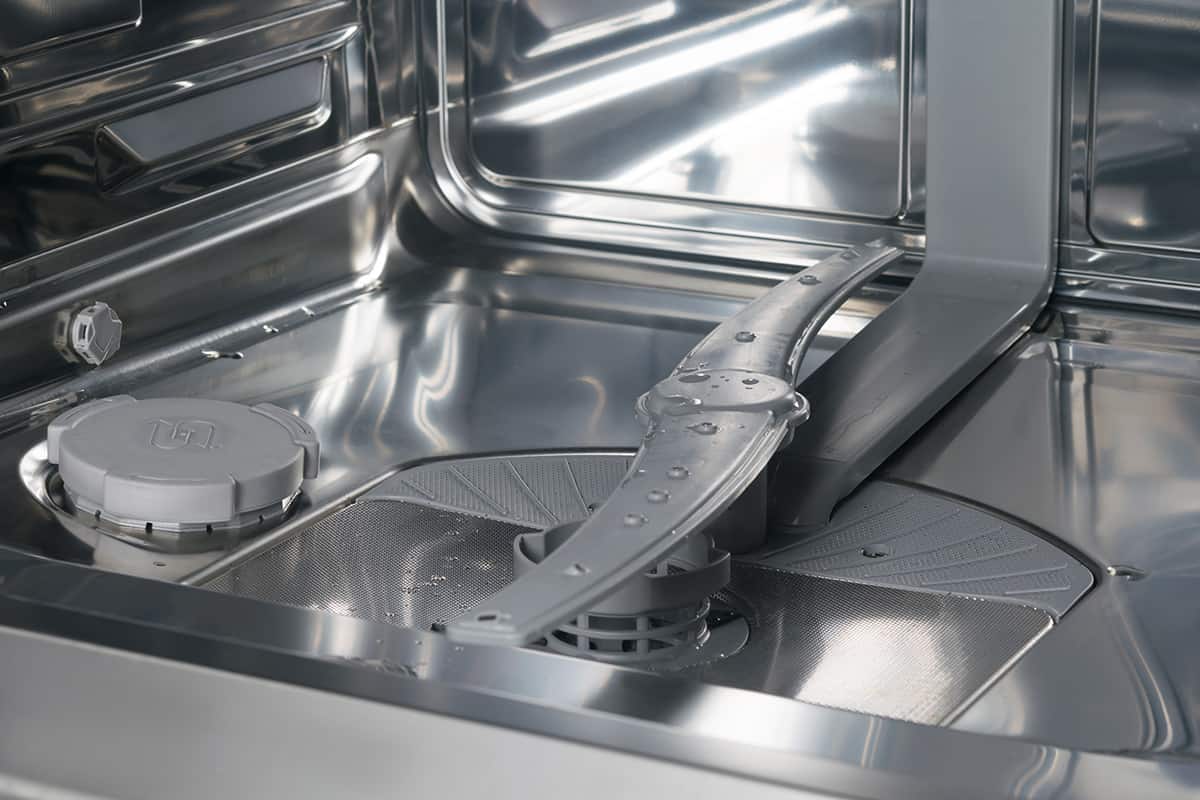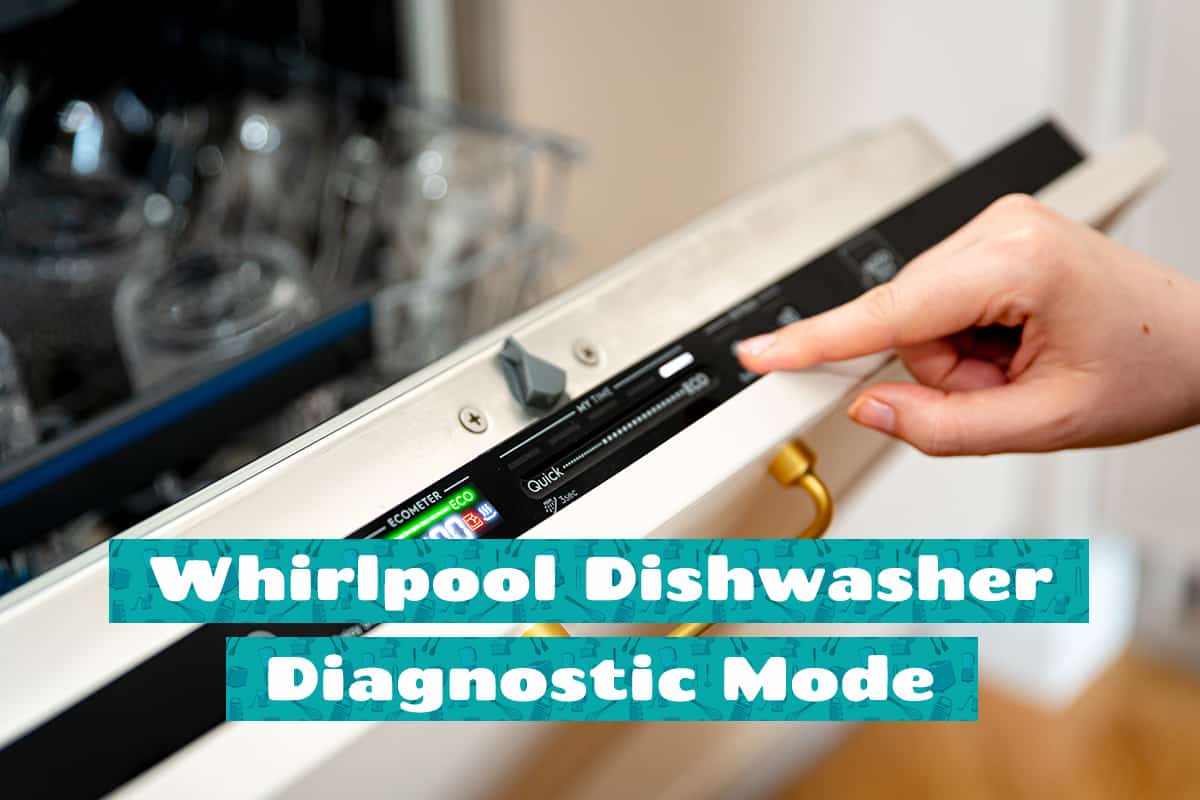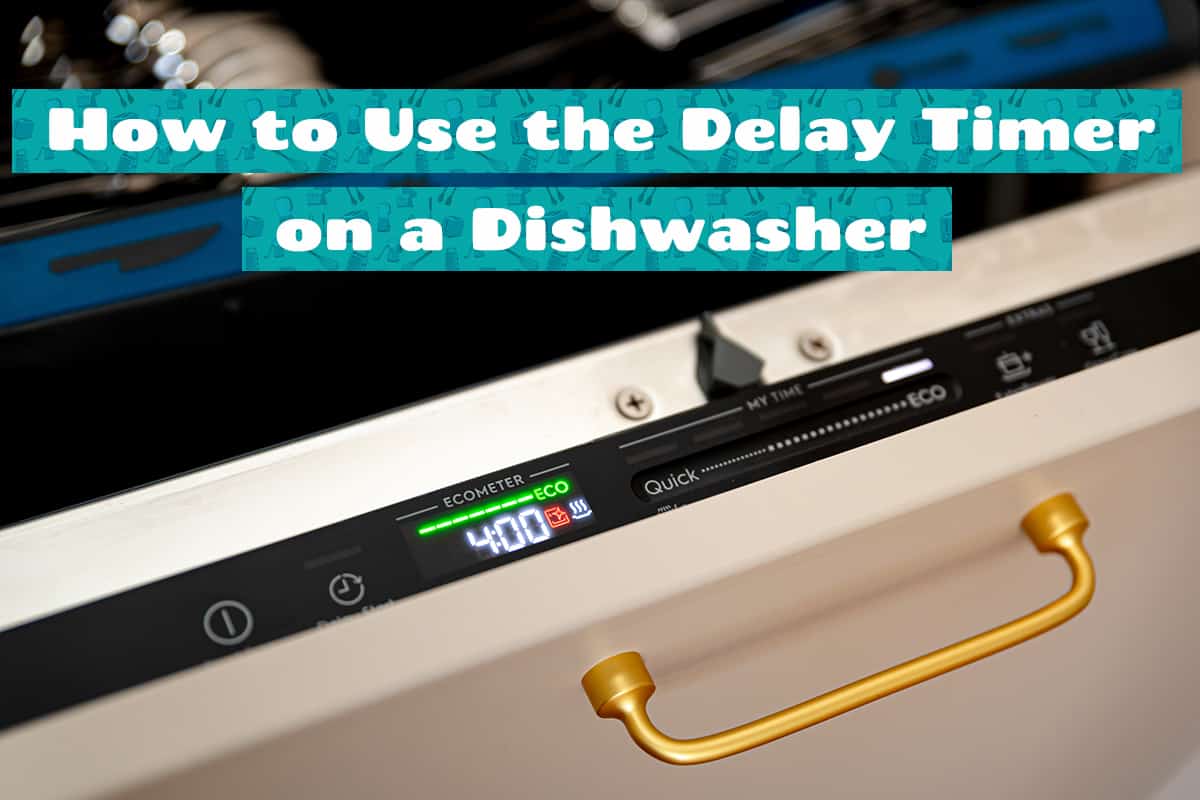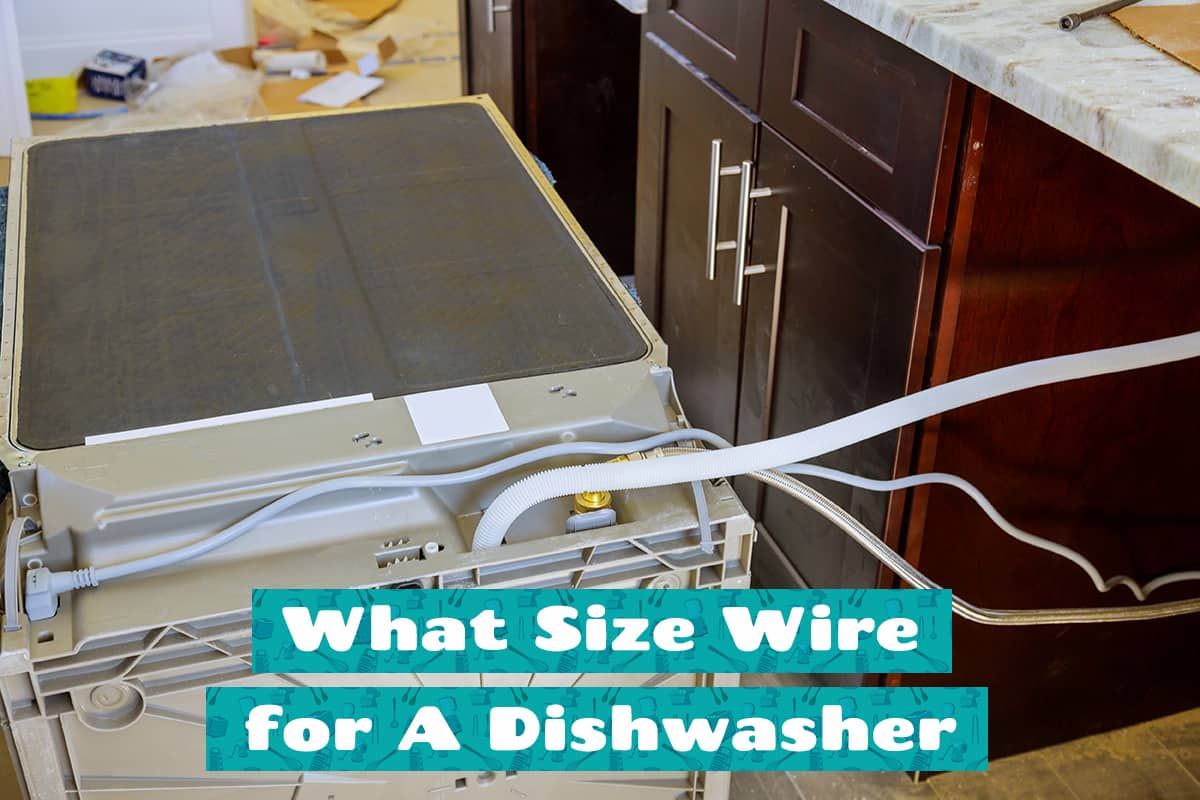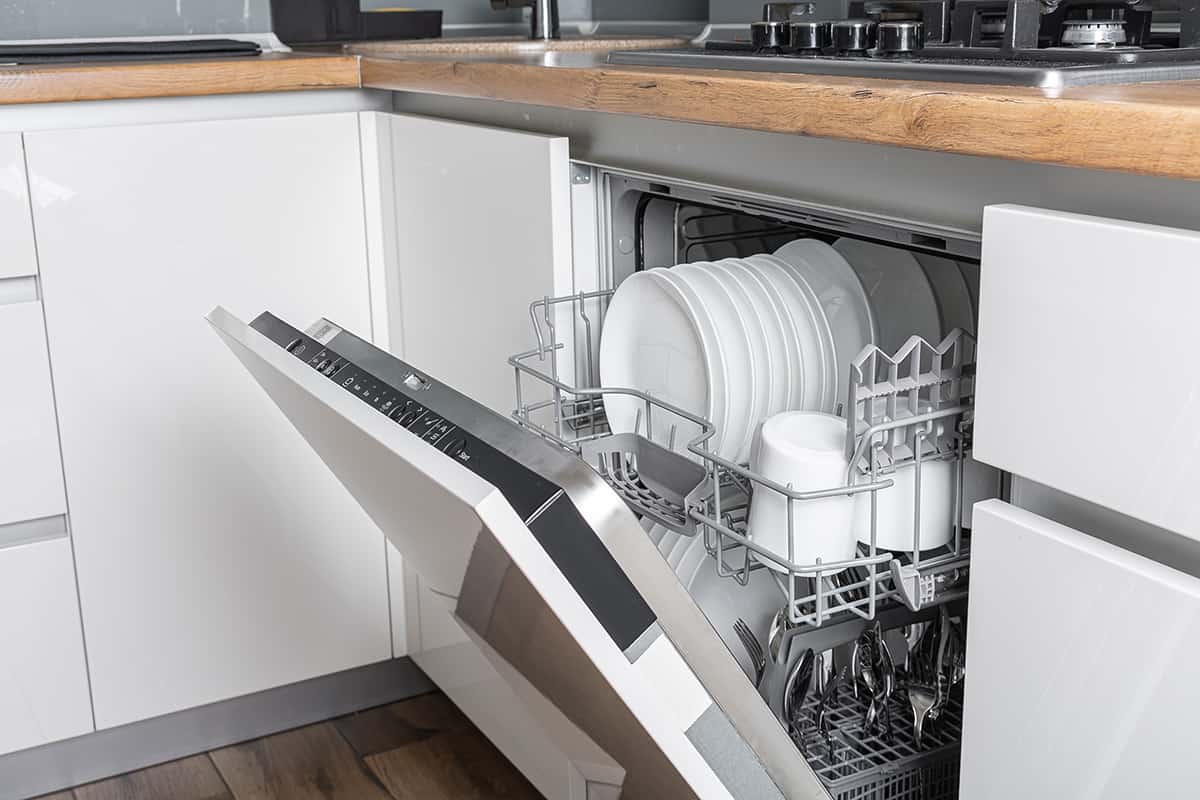Dishwashers are straightforward kitchen appliances. You hook them up to a water and garbage disposal, plug it in, and press a few buttons to start it up. But what if your kitchen isn’t fitted with a garbage disposal? Will your dishwasher pulverize food remnants into small, manageable chunks?
Some dishwashers come with a built-in garbage disposal. However, most of them will feature a filter assembly, whose job is to capture solid particles and prevent them from clogging the drain line.
If you’re wondering which one of these systems is better, you’ve come to the right place. Below, I’ll describe what a built-in garbage disposal does, how it compares to a filter assembly, and which is the better option.
What Is a Garbage Disposal?
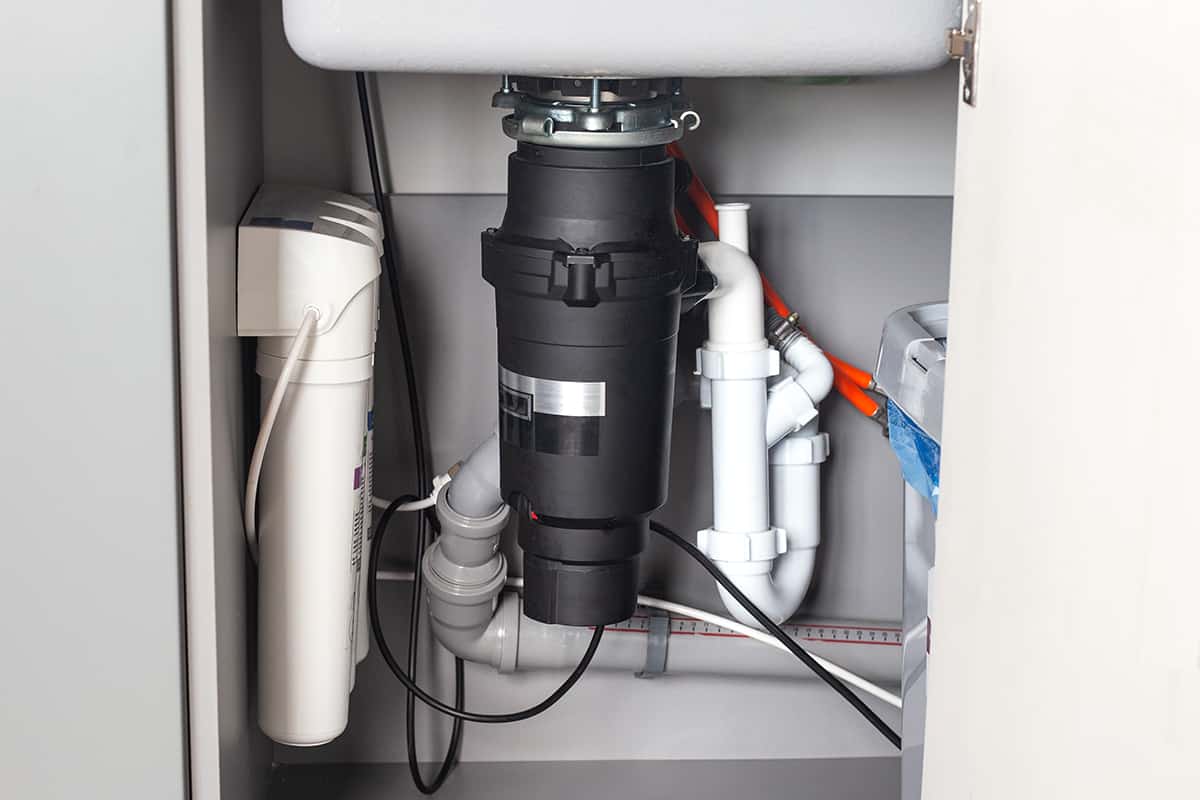
First, let’s discuss the basics since many of you might not even be aware that dishwashers come with a garbage disposal.
A garbage disposal is an electricity-driven device that spins sharp blades at high speeds. The blades’ purpose is to break down food remnants into tiny pieces, which allow them to go through your kitchen’s sewer line with minimal risk of clogging.
However, it’s not the only system in place to stop your dishwasher from clogging sewer lines. I’ll cover an alternative system that is more prominent in European-made machines later on.
Do Dishwashers Have Garbage Disposals?
The straightforward, no-nonsense answer to this question is, yes, some dishwashers come with garbage disposals.
Such a dishwasher will feature a motor built into the machine that drives a series of blades to break down food remnants into tiny, easy-to-dispose particles. For the most part, American-made dishwashers will come with such a handy device.
European models, on the other hand, do not. Instead, they will have a filter assembly that captures food remnants and prevents them from going down the drain.
However, there are dishwasher models that combine the best of both worlds. They will break food particles into tiny bits, while larger chunks will get trapped in a fine-mesh filter.
Dishwashers with Built-in Garbage Disposals
If you’re currently checking out dishwasher models sporting the KitchenAid, Whirlpool, or General Electronics logos, then odds are they will come with a built-in garbage disposal.
The great thing about these dishwashers is that you do not need to have a pre-installed garbage disposal in your kitchen. Instead, any food remnants that pass through the dishwasher will end up as a pulverized mess without manually flipping switches.
However, this begs the question: are garbage disposals built into dishwashers better than standalone garbage disposals? Alas, no, they are not.
Standalone garbage disposals typically found underneath sinks come with beefier motors and larger blades—2 things it will need to crush tough objects like chicken bones and ice cubes in a jiffy.
That said, it’s not like you will place chicken bones and ice cubes in your dishwasher, so for the most part, it doesn’t necessarily need such a heavy-duty garbage disposal.
Dishwashers with Filter Assemblies
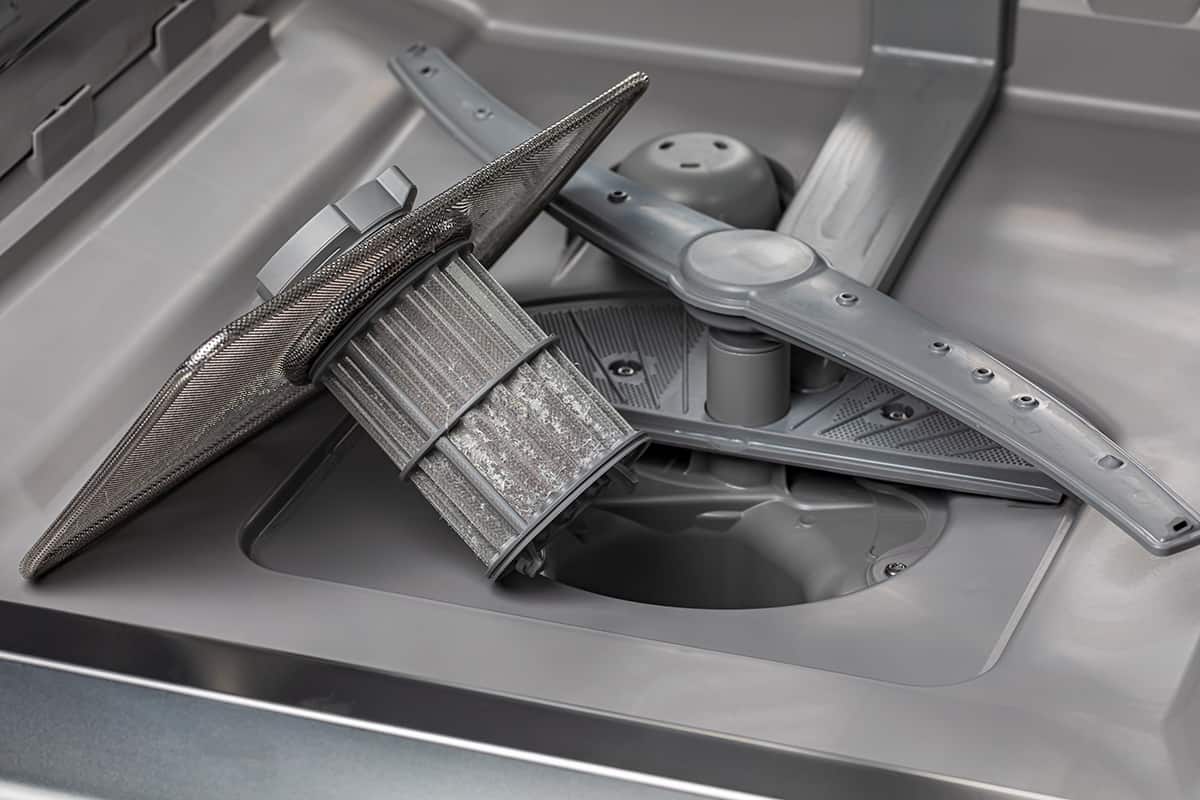
What you will commonly find in European-made dishwashers is that the manufacturer will skip adding garbage disposals to their machines and instead install a filter assembly at the bottom of the tub.
The filter assembly does exactly as you could imagine—it traps food particles from passing through the drain hose and possibly clogging your sewer line.
There are 2 reasons why European manufacturers take this route. The first is that built-in garbage disposals are noisy.
If you’ve ever tried running a garbage disposal before, you’ve probably had to take a few steps back to stop the motor and blades from ruining your hearing, even temporarily. A filter assembly doesn’t produce any noise since it just sits there and waits for solid particles to adhere to the filter mesh.
The second reason is that a built-in garbage disposal increases energy consumption. Since most manufacturers are trying to reduce how much energy they use per cycle, you won’t find additional features, like a built-in garbage disposal, in most European-made dishwashers.
So, if you live an environmentally aware lifestyle, I would wholeheartedly recommend choosing a dishwasher with a filter assembly in place of one with a garbage disposal. For the most part, the filter will capture anything the garbage disposal would grind up, but you don’t have to deal with spikes in your energy bill.
Are Dishwashers with Built-in Garbage Disposals Good?
Sadly, there is no clear-cut answer to this question. It will ultimately depend on what you need your dishwasher to do.
To help you make up your mind, let’s briefly go over the pros and cons of dishwashers with garbage disposals and dishwashers with filtration systems.
Garbage Disposal Pros and Cons
Pro—Breaks down large bits into tiny particles. That said, you should still toss away as many solid food remnants as possible before placing your dishes in the dishwasher to prevent the blades from becoming dull.
Pro—Minimal risk of clogging. Because solid food is pulverized into tiny, easy-to-manage particles, there is virtually zero risk of the machine’s drain line clogging, as long as you dispose of larger remnants prior to arranging your dishes on the dishracks.
Con—Noisy. If you live in an apartment, your neighbors will hear your dishwasher’s garbage disposal whenever it turns on. Granted, they’re not as noisy as they used to be, but you should still be prepared for the loud sounds generated by your dishwasher.
Con—Extra maintenance. Since the garbage disposal uses an electric motor, it will require periodic monitoring and maintenance to ensure that it remains in tip-top shape. If and when the motor breaks down, you will have to replace the entire garbage disposal unit.
Con—Not very powerful. There are all sorts of lists that tell you what you can and cannot place in your garbage disposal. However, when it comes to garbage disposals in dishwashers, that list becomes even shorter. That is because the motor is not designed for maximum power to tear through most solid food waste.
Filter Assembly Pros and Cons
Pro—Quiet. The filter assembly consists of 3 components—the main filter, a cup, and a fine filter. It is not connected to any electrical component and, as such, will not generate any noise at all.
Pro—Easy to clean. When the filter assembly becomes clogged, it will cause standing water at the bottom of your dishwasher. Simply remove the filter assembly, soak it in soapy water, and scrub it until the meshes are clear of debris.
Pro—Lower upfront cost. If you do a side-by-side comparison between comparable dishwashers with garbage disposals and filter assemblies, you’ll find the latter to be considerably cheaper than the former. Again, this is due to the lack of additional motorized components.
Con—Can clog frequently. Unlike garbage disposals, which break down food remnants into tiny particles, the filter can clog. And when it does, it can lead to a host of problems, including bacteria buildup and foul odors.
A Quick Summary
Each dishwasher variant has a unique set of pros and cons. So, only you, the customer, can determine which route to take.
However, if you’re on the fence, then you should take a look at dishwasher units that come with garbage disposals and filter assemblies. Any leftover particles that somehow make it past the dual-tier filters will end up becoming a fine mush from the garbage disposal’s blades.
Do I Need a Dishwasher with a Garbage Disposal?
While the decision is in your hands, I’ll offer a few arguments as to why you should consider getting a dishwasher with a garbage disposal.
Unless you need a garbage disposal for a restaurant or commercial establishment, then you could get by with a lower-powered garbage disposal built into your dishwasher. In fact, as long as you remember to toss out any bones, leftover pasta, ice cubes, and meats in the garbage, then the built-in garbage disposal should prove to be more than adequate for most pulverizing jobs.
Another huge benefit of built-in garbage disposals is that they can be self-cleaning. This means you don’t have to use a long utensil to manually remove food remnants stuck between the blades. However, there will be a time when the garbage disposal has bitten off more than it can chew, and that’s when the owner has to step in and resolve the issue.
Lastly, even though the garbage disposal can be noisy, it’s not so loud that it will disturb you and those around you. As long as you operate your dishwasher during the day and remember to turn off the garbage disposal function at night, then you shouldn’t receive too many noise complaints.
So, even though I would recommend choosing a low-power dishwasher with a filter assembly, one could make the argument that dishwashers with garbage disposals are still relevant in this day and age.
That said, if your kitchen already has a garbage disposal installed underneath your sink, you should choose a dishwasher with a filter assembly instead. There’s absolutely no reason why your kitchen would need 2 garbage disposals, especially when you consider that your dishwasher can be hooked to the garbage disposal under the sink.
